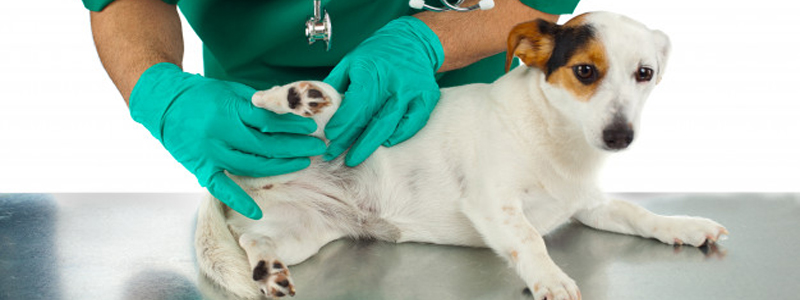BY SAMANTHA BARTLETT
A recent prospective cohort study published in the BMJ Veterinary Journal looked at incidence rate, and risk factors in canine post-operative infections. Current estimates on the prevalence of surgical site infections in dogs range from 3 to 6.6%. The researchers in this study looked at 184 male and female dogs of all ages undergoing soft tissue surgery over a 1-year period at a veterinary teaching hospital. Researchers also looked at costs associated with surgical site infections when they occurred in these patients. Other factors considered were surgical scrub type, number of people participating in the surgery, length of time for the surgery, participation of undergraduates in the surgery and how the wound was sealed. Animal participants were evaluated at days 5 and 10 post-op.
Sixteen cases of surgical site infection were reported out of the 184 procedures evaluated. Of these, 13 were superficial infections at the incision, two were deep incisional infections and there was one case classified as organ/space infection There appeared to be no risk factors for age, sex or breed of dog. Researchers did find that the use of steroidal anti-inflammatories, pre-operative hyperglycemia, surgery time that lasted more than one hour, use of urinary catheters, and lack or misuse of Elizabethan collar increased the risk of infection.
In dogs that developed infection, post-surgical costs rose by 142%. This cost was mostly comprised of increased number of follow-ups appointments required, bacterial cultures and medication. Pre-surgical and surgical costs in these dogs remained the same as others in the study.
Also of note, all patients in the study received preoperative antibiotics regardless of the procedure. Guidelines for the administration of preoperative antibiotics are largely extrapolated from human medicine that recommend preoperative antibiotics based on the cleanliness of the surgery.
Overall, this new study showed incidence of surgical site infections to be higher than previously estimated. The authors postulate that earlier estimates were due to lack of evaluation by trained personnel and that development of a recheck system by trained personnel will help catch problems at an earlier stage and allow for more effective intervention. Avoidance of surgical site infections by managing risk factors will reduce morbidity, post-surgical costs and emotional impact on owners.











